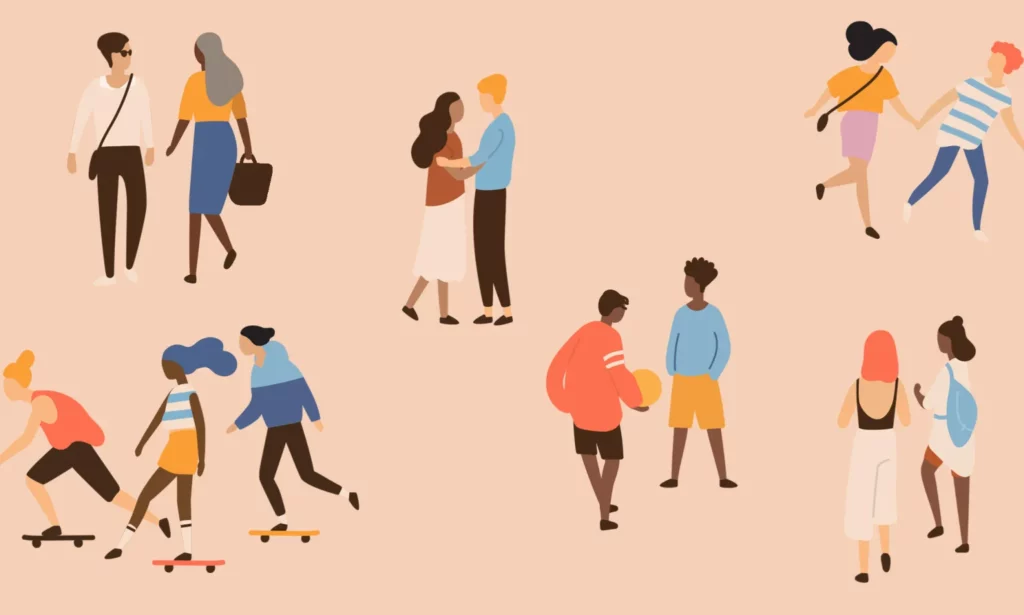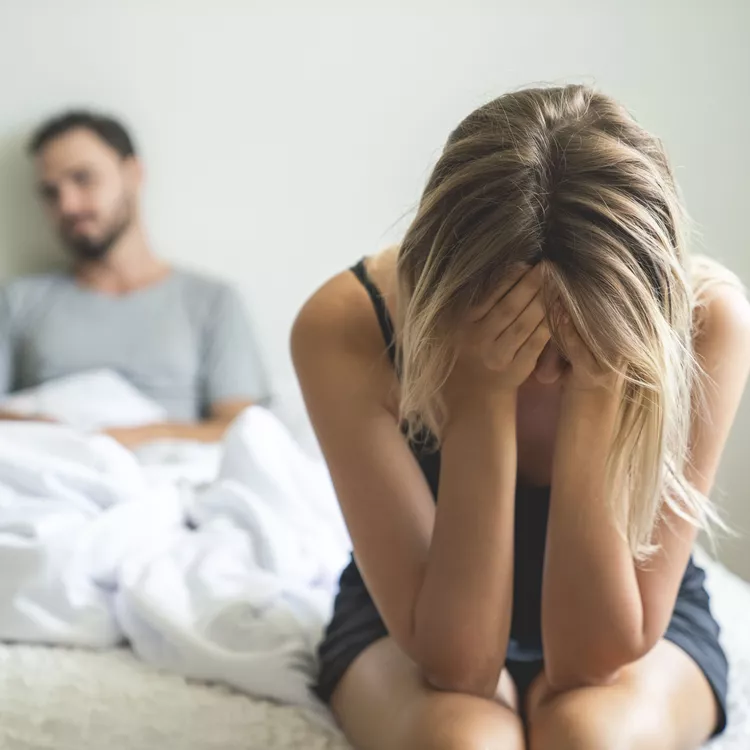What are the benefits of relationship counselling?
‘Relationship counselling? No way!’, I hear you say. Making the decision to go to therapy can be tough enough, but the idea of looking at our important relationships as part of that, for most people, is super scary. I have trained in a variety of traditional, individual therapeutic modalities including Cognitive Behavioural Therapy (CBT), Dialectical Behaviour Therapy (DBT), Schema Therapy, and Acceptance and Commitment Therapy (ACT) to name a few.
Many of these therapies can be useful and I routinely utilise elements of them as part of my everyday practice, but after a decade of working in Mental Health, I have seen the benefits of engaging in, let’s call it, the ‘deeper work’. I believe that all of our emotional challenges have roots in our relationships (and no, that doesn’t mean there is something ‘wrong’ or dysfunctional about your relationships, it just means your human). Therapy with a focus on the impact of your important relationships is beneficial because it looks beyond the surface level. What’s more important after all, the flower, or the soil in which it grows. We are an interconnected, interdependent species (as much as we may try to fight it at times).

So, what is relationship counselling (at Stoa Therapy)?
Relationship counselling is not one thing and many therapists will have differing views, definitions, and approaches. For some, relationship counselling will be specifically referring to couple’s counselling, for others, it may refer to Family Therapy. For us here at Stoa, it’s a catch-all. Relationships are part of what makes us human. The closest people to us can bring us both the greatest joy, but also the deepest pain. We as humans have evolved in social systems. We care what others think, we are sensitive to the emotions of our loved ones, when our children are anxious, we feel it too, when our spouses are angry, it stirs up intense emotions in us too.
Often, when an individual, couple, or family comes to see me, they’re grappling with issues that seem to be about one particular symptom, behaviour, or conflict. Here at Stoa, we believe that these surface-level symptoms can be best understood by stepping back and examining the broader web of relationships in which they occur. Our earliest relationships, especially those within our family of origin, profoundly shape how we connect, communicate, understand, and cope with emotions throughout our lives.
In my practice, I encourage clients to explore these foundational relationships and identify patterns that may be influencing their current interactions. For example, someone who learned to suppress their emotions to keep peace in a chaotic household may find it challenging to express their needs in a marriage. A ‘high achiever who is an eldest sibling of an immigrant family, may have occupied a position of looking after everyone and taking care of business, however, they may have become burnt out and resentful about ‘having’ to function this way. By understanding these patterns, we can start to see how past dynamics are playing out in the present and begin to shift them to make changes – if we are not happy with how things are going that is.

If only they would change...
In my practice (and in my personal life), I regularly see people exhausting huge amounts of energy willing, wanting, and trying to change other people. Parents who are anxious about their children’s futures, trying to ‘encourage’ them into certain career paths, wives trying very hard to ‘fix’ their husband’s depression and so on, and so on, and so on. Often, this might work for a period of time, but it’s unsustainable. It’s a house built on an unstable foundation and inevitably, in time, the cracks will start to show.
Relationship counselling here at Stoa, despite the name, does not require more than one person to attend. Initially in my therapy, many people do not want to go near their relationships. They want to feel less anxious, happier, or more confident. They want to stop drinking, or gambling, or they want to stop thinking about ending their lives. I meet people where they are at, if they don’t want to focus their relationships, that’s okay; but, if they are willing, there is always benefit to looking past these symptoms, to the root of the issues – relationships.
Whilst we wait for others to change, we remain stuck. If we are not happy with one aspect of our life or another, we must make the change (and we do this by learning what has held us back from changing it so far).
In a nutshell, how can therapy help?
If we look at ourselves narrowly, we miss a large piece of who we are, what we do, and dare I say it, why we do it. To explain this, I will borrow some thinking from Bowen et al (1959) and Papero (1990) who suggested that this is best explained using a sports analogy. I will not go into great detail about this, suffice to say, if you look at an individual player on the field, you may be able to appreciate his talent and technical skills and from this, you may be able to make some assessment as to how well the team might do. However, if you ‘zoomed out’ and took a birds-eye view, you would notice that each individual player has a role and function as part of the wider team and that the success of the team is dependent on each individual fulfilling their function or role within this larger unit. If one player moves out of position, another needs to fill in for them, if a player makes a dummy run and takes a hit, it is to make space for the runner with the ball.
So how does this thinking translate into therapy. Well, sometimes, one of our children has been making the dummy runs and taking the hits, or maybe we have been covering our partner’s position over and over, whilst their energies are focused elsewhere. Here at Stoa, we emphasise the importance of self-awareness and differentiation of self. This means being able to balance our own needs and emotions whilst staying emotionally connected to others. It’s about finding that sweet spot where you can be true to yourself without pushing others away, or losing yourself in relationships. Life really is a rollercoaster, emotion is contagious, we have enough of our own stuff to deal with, without taking responsibility for the emotions of those around us. This can be a delicate dance, but it’s key to fostering healthier, more resilient relationships, and improving our emotional functioning.
Ultimately, our goal in counselling is to help clients build stronger, more understanding connections with themselves and their loved ones. By delving into both past and present relationships, we can uncover the roots of emotional challenges and work towards more fulfilling, harmonious interactions. Learning what is keeping us stuck is a vital step before trying blindly move forward with strategies. This work is not about blame, nor is it about willing and waiting for others to change. Therapy is about taking control and changing the only thing within your power, you. This is a life long project, but this, is meaningful, worthwhile work.
FAQ’s
How much is relationship counselling?
Rates at Stoa are displayed in our FAQ section on our website. I have an interest and expertise in relationships and I can focus these as part of his regular, individual therapy at the normal rate. The fact that ‘relationship counselling for free’ was one of the most searched terms related to relationship counselling during my research for this article demonstrates that people are often desperate to improve things. Unfortunately, most therapists are experienced, competent, and conscientious undergo ongoing training and supervision as part of their professional practice. This is costly, but is part of doing the job effectively. I get better to provide a better service; this is one of the reasons my rates are set where they are, I invest financially in myself to ensure I am doing a good job for my clients.
How can I find relationship counselling near me?
As discussed in the article, that depends on what your definition of relationship counselling is. If your definition aligns with the descriptions in the article above, Calum offers in-person relationship counselling in the Eastern Suburbs of Sydney and via telehealth, meaning that he can service clients Australia and world-wide.
Will relationship counselling save my marriage? or – Will relationship counselling fix my relationship?
No therapist has a crystal ball. Relationship counselling, any counselling for that matter, if done correctly is hard work. Why? Because it challenges you to move out of familiar patterns/positions and into the unknown. That often means doing things that feel scary and unfair. There are no guarantees, but it can’t hurt to try and gain insight and improve things if your marriage is not going well. Divorce is hard, Therapy is hard – choose your hard.
Is relationship counselling worth it?
I suggest you read the above the article again? I have heard this question a number of times. People don’t want to go there. They want their emotional or behavioural difficulties (anxiety/depression/anger/alcoholism/conflict) to be fixed and to move on with their lives. I believe relationship counselling with us here at Stoa is worth it, because it looks beyond the surface level symptoms you may present with and looks at you within your wider context, it looks at the root cause. It doesn’t just put a band-aid on things, but hey, is it worth it? That’s a question only you can answer.
Hi, this is a comment.
To get started with moderating, editing, and deleting comments, please visit the Comments screen in the dashboard.
Commenter avatars come from Gravatar.